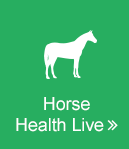Selenium Deficiency in Horses
Selenium is an essential mineral for horses, which means it must be part of their diet in order for your horse to maintain optimal health. The National Research Council recommends that the average 1000 lb horse consume 20 mg of selenium daily. 20 mg is a very small amount compared to the requirements of most other nutrients. Most horses get enough selenium from their diet, but selenium concentrations in the soil vary drastically throughout the United States. Horses that live in the northwest, southeast and Great lakes regions are more likely to be deficient in selenium due to the coastal and volcanic deposits in the soil. If you are concerned about your horse’s selenium, it is a good idea to have your soil or pasture tested to get a better idea of just how much selenium your horse is getting.
Horses that are not getting enough selenium from their pasture can benefit from a selenium supplement. Selenium is important to the health of cell membranes and muscles. Deficiencies can lead to muscle disorders such as Tying-Up or White Muscle Disease. Before adding a selenium supplement to your horse’s diet, talk to your vet to evaluate your horse’s selenium intake from forages and grain because too much selenium can cause problems too. Even just slightly increased selenium intake can cause hair loss to horses’ manes and tails or horizontal cracks around the heel of their hooves.
Studies
The selenium and vitamin E status of horses in Prince Edward Island.
Naturally occurring selenosis in Wyoming.
Pathologic findings in equine muscle (excluding polysaccharide storage): a necropsy study.


